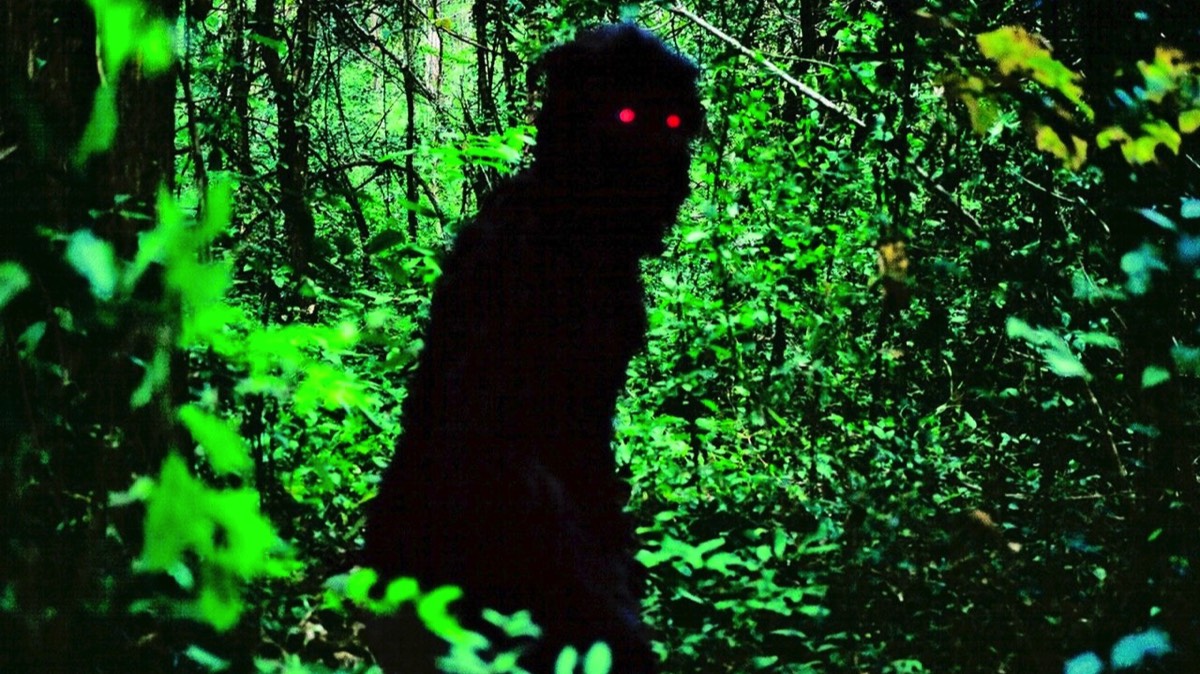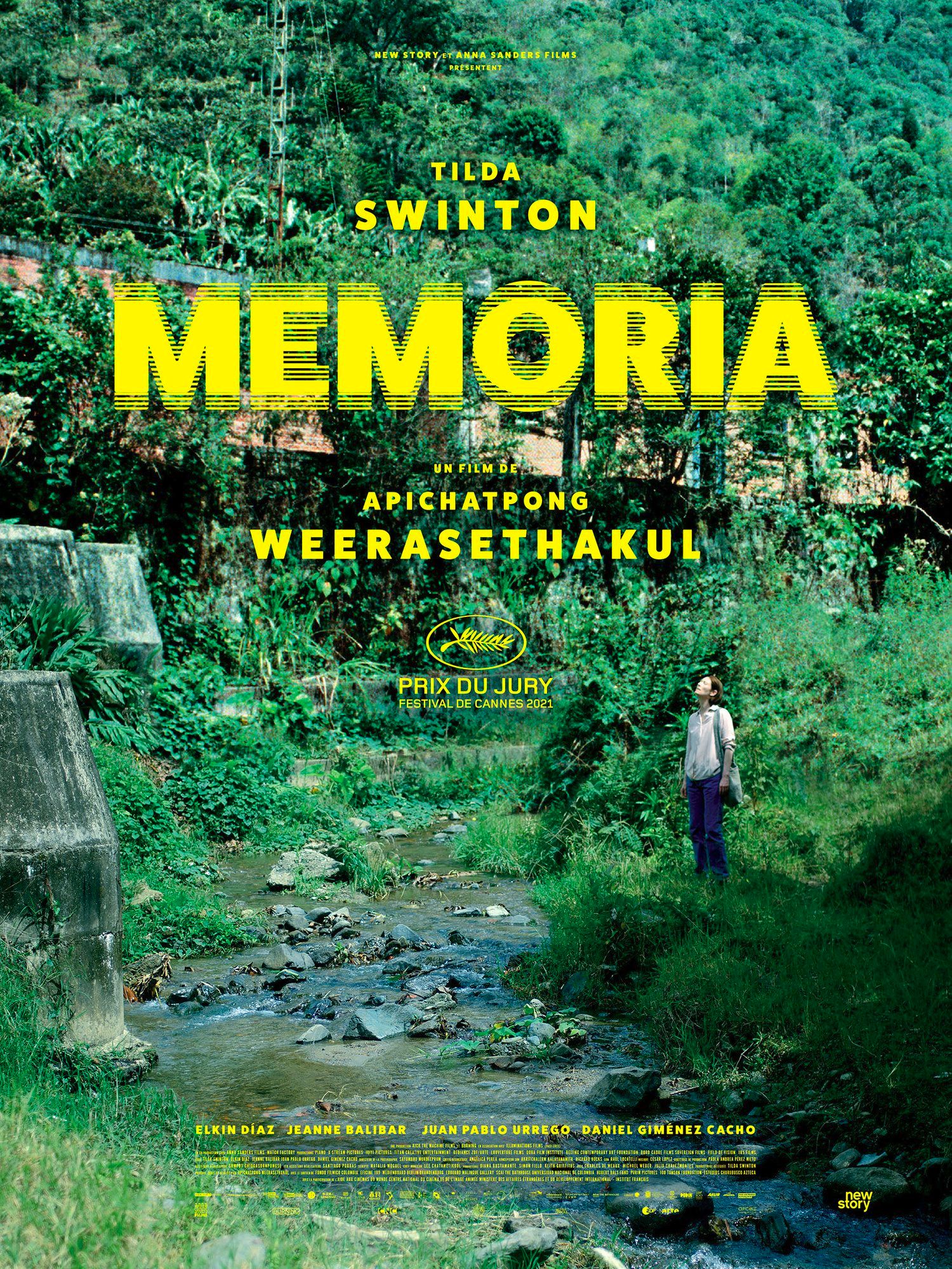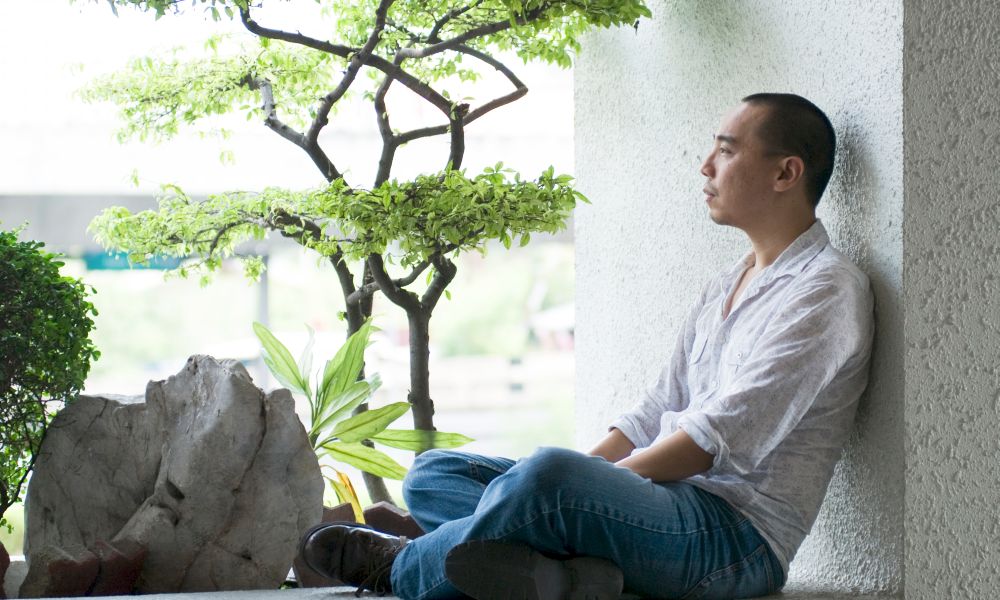"For Weerasethakul, love transcends space and time, seeping into the spirit world - think of his films as bifurcated fever dreams that take giant leaps into the unknown. Operating outside the strict Thai studio system, Weerasethakul's peculiar style of filmmaking defies easy description." - Andrew Bailey (Cinema Now, 2007)
Apichatpong Weerasethakul
Director / Screenwriter / Editor / Producer / Cinematographer
(1970- ) Born July 16, Bangkok, Thailand
Top 250 Directors / 21st Century's Top 100 Directors
(1970- ) Born July 16, Bangkok, Thailand
Top 250 Directors / 21st Century's Top 100 Directors
Key Production Countries: Thailand, UK, France, Germany, Netherlands
Key Genres: Drama, Short Film, Avant-garde/Experimental, Psychological Drama, Fantasy, Essay Film
Key Collaborators: Lee Chatametikool (Editor), Sayombhu Mukdeeprom (Cinematographer), Adekarat Homlaor (Production Designer), Simon Field (Producer), Keith Griffiths (Producer), Charles de Meaux (Producer), Sakda Kaewbuadee (Leading Character Actor), Jenjira Pongpas (Leading Actress), Phetmongkol Chantawong (Leading Actor), Banlop Lomnoi (Leading Actor), Kumgieng Jittamaat (Leading Actor), Miti Jittamaat (Leading Actress)
Key Genres: Drama, Short Film, Avant-garde/Experimental, Psychological Drama, Fantasy, Essay Film
Key Collaborators: Lee Chatametikool (Editor), Sayombhu Mukdeeprom (Cinematographer), Adekarat Homlaor (Production Designer), Simon Field (Producer), Keith Griffiths (Producer), Charles de Meaux (Producer), Sakda Kaewbuadee (Leading Character Actor), Jenjira Pongpas (Leading Actress), Phetmongkol Chantawong (Leading Actor), Banlop Lomnoi (Leading Actor), Kumgieng Jittamaat (Leading Actor), Miti Jittamaat (Leading Actress)
"The films of Thai-born, Chicago-educated filmmaker Apichatpong Weerasethakul defy easy explanation, but that doesn’t mean they’re difficult to watch. There are few filmmakers whose work so purely radiates the joy of creation, and who express a more palpable sense of engagement with the world around them. His films contain shreds of plot, but following them only leads to confusion. They are better understood as sensory experiences, structured according to the fluid logic of memory and held together by threads of desire." - Sam Adams (A.V. Club, 2011)
"Unique, experimental, allusive and elusive, Apichatpong Weerasethakul's transcendental meditations blur boundaries and alter reality, using nonprofessional actors and long takes that stretch both time and audience patience. A star of the Thai New Wave, Weerasethakul studied architecture and designed dream houses, before studying art and film at the Chicago Art Institute, where he produced a series of avant-garde shorts." - Lloyd Hughes (The Rough Guide to Film, 2007)

Uncle Boonmee Who Can Recall His Past Lives (2010)
"Glancing over his sizeable back catalogue, which consists of myriad shorts, installations, music videos and conceptual doodles, it’s clear the director has a voracious appetite for image making and is willingly flexible when it comes to working with varying media and budgets." - David Jenkins (Time Out, 2010)
"2010 Golden Palm winner Apichatpong "Joe" Weerasethakul is widely praised as one of the central figures in contemporary cinema. Trained as an architect in Thailand and as a visual artist in Chicago, he has stunned the film world with five innovative and dreamlike features made since the year 2000 - including award-winning films such as Blissfully Yours, Tropical Malady, and Syndromes and a Century. He is also an acclaimed installation artist, exhibiting his work in museums and art spaces all over the world." - Film Museum
"A generation has now come of age loving his movies about fearlessly grinning boys and freaky ventilation systems and far-out haunted forests; blissfully his as they surrender, still young, to Tropical Malady (2004), as recollective as Uncle Boonmee Who Can Recall His Past Lives (2010) when they later come to recognize the ways in which each of his films seems to haunt all the others." - Chuck Stephens (Cinema-Scope)
"More than almost any other figure in contemporary world cinema, Apichatpong presents a phalanx of critical problems and unpickable contradictions, like Pasolini did in his day. Paradoxically, this difficulty both helps to elevate his stature to the international art house elite, and prevents him from entering its empyrean." - James Quandt (Apichatpong Weerasethakul, 2009)
"He is contemporary cinema’s preëminent poet of place and of dislocation. Like that other poet-filmmaker before him Jean Cocteau, Weerasethakul, who goes by the nickname Joe, produces a cinema in which dreams and politics converge. But, where Cocteau’s work is driven by Western ideas about structure, sound, and acting, Weerasethakul’s draws on Buddhist tradition and Thai folklore to create stories that—like life—often change direction, stop abruptly, or become something else altogether." - Hilton Als (The New Yorker, 2022)
"Among the 21st century’s most essential artists, Apichatpong Weerasethakul has amassed a richly original and transcendently mesmerizing body of work that few filmmakers can match… Weerasethakul’s formally daring oeuvre is marked by a meticulously controlled sense of cinematic sensuality and a powerful, understated gift for locating the political within the everyday. A towering figure in both world cinema and the art world, Weerasethakul continues to work in short- and feature-length filmmaking, always manifesting an experimental desire to rethink the possibilities of the medium. A singular cinephile in his own right, Weerasethakul has engaged with film history in profound ways." - Film at Lincoln Center, 2023
"For me, film-making is still young, it still has room to grow, and now it's still attached to other kinds of art, like literature, or theatre. I'm not saying I'm trying to create some revolutionary style, but each film has its own language – the movie tells you how it wants to be told. But we tend to stick to very few modes of expression." - Apichatpong Weerasethakul (The Guardian, 2010)
"I, as a filmmaker, treat my works as I do my own sons or daughters. I don't care if people are fond of them or despise them, as long as I created them with my best intentions and efforts." - Apichatpong Weerasethakul
"Architecture taught me how to look at things and how to accommodate people in certain spaces. People experience space, beauty, in true time, and film is also like journeying through time." - Apichatpong Weerasethakul
Selected Filmography
{{row.titlelong}}
GF Greatest Films ranking (★ Top 1000 ● Top 2500)
21C 21st Century ranking (☆ Top 1000)
T TSPDT R Jonathan Rosenbaum
21C 21st Century ranking (☆ Top 1000)
T TSPDT R Jonathan Rosenbaum
Apichatpong Weerasethakul / Favourite Films
The Chess Players (1977) Satyajit Ray, Empire (1964) Andy Warhol, Goodbye, Dragon Inn (2003) Tsai Ming-liang, Mad Max: Fury Road (2015) George Miller, The Nose (1963) Alexandre Alexeieff & Claire Parker, The Puppetmaster (1993) Hou Hsiao-hsien, Quick Billy (1971) Bruce Baillie, Rehearsals for Extinct Anatomies (1987) Stephen Quay & Timothy Quay, Rose Hobart (1936) Joseph Cornell, The Texas Chainsaw Massacre (1974) Tobe Hooper.
Source: Sight & Sound (2022)
The Chess Players (1977) Satyajit Ray, Empire (1964) Andy Warhol, Goodbye, Dragon Inn (2003) Tsai Ming-liang, Mad Max: Fury Road (2015) George Miller, The Nose (1963) Alexandre Alexeieff & Claire Parker, The Puppetmaster (1993) Hou Hsiao-hsien, Quick Billy (1971) Bruce Baillie, Rehearsals for Extinct Anatomies (1987) Stephen Quay & Timothy Quay, Rose Hobart (1936) Joseph Cornell, The Texas Chainsaw Massacre (1974) Tobe Hooper.
Source: Sight & Sound (2022)
Apichatpong Weerasethakul / Fan Club
Kong Rithdee, Jonathan Romney, Robbie Collin, Michael Atkinson, Manuel Yáñez-Murillo, Cristina Nord, Sam Wigley, Nicolas Rapold, Mark Cousins, Jean-Michel Frodon, Diego Lerer, Ruy Gardnier.
Kong Rithdee, Jonathan Romney, Robbie Collin, Michael Atkinson, Manuel Yáñez-Murillo, Cristina Nord, Sam Wigley, Nicolas Rapold, Mark Cousins, Jean-Michel Frodon, Diego Lerer, Ruy Gardnier.
"Fan Club"
These film critics/filmmakers have, on multiple occasions, selected this director’s work within film ballots/lists that they have submitted.
These film critics/filmmakers have, on multiple occasions, selected this director’s work within film ballots/lists that they have submitted.


